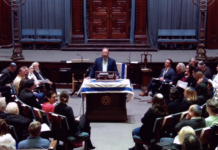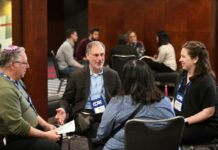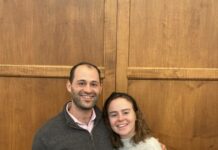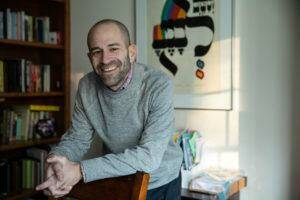
The Jews in the pews are quiet and sitting up straight. The climactic moment of the High Holiday service has arrived: the rabbi’s sermon.
What will he or she say? And why? And how will that inspire us to do better in 5784?
Let’s listen to a few of our Philadelphia-area rabbis.
Rabbi Benjamin David of Reform Congregation Keneseth Israel (Elkins Park)
“We are never without the opportunity to start over when it comes to relationships, personal challenges, who we want to be as Jews.”
Rabbi Yonah Gross of Congregation Beth Hamedrosh (Wynnewood)
“What should we learn from the Torah’s prohibitions? Don’t do this. Don’t do that. Society has trouble saying no to things that are morally wrong. There are a lot of vices that people are struggling with. Wasting-time addiction. And everybody will admit and almost make fun of the fact that people are spending so much time on screens. To be able to say that, I spent the past half hour focusing on something that’s not that…it builds self-esteem and willpower.”
Rabbi Jon Cutler of Beth Israel Congregation of Chester County
“Where synagogues have failed is we haven’t given much purpose. The focus was on bar and bat mitzvah ceremonies and not necessarily on instilling in our children what it means to be Jewish. The solution to that is to refocus on what the purpose of a synagogue is. It’s building Jewish relationships. Going out and becoming co-creators with God. Perfecting God’s creation.”
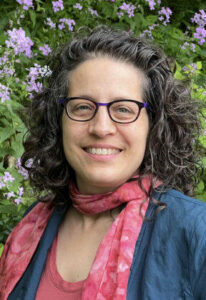
Rabbi Diana Miller of Kehilat HaNahar (New Hope)
“How can we harness collective power to hold responsible corporations and governmental agencies to push us in the direction of sustainability? Our ancient Jewish values speak deeply to our respect for earth. I hope that people will engage in movements such as Dayenu. It’s a movement to confront a climate crisis rooted in Jewish values.”
Rabbi Julie Greenberg of Congregation Leyv Ha-Ir (Philadelphia)
“Mordecai Kaplan, who founded Reconstructing Judaism, identified three aspects to religion: Believing, behaving and belonging. And of those, belonging is the most important. Jews can believe a wide diversity of things. You can question authority. And the same is true with behaving. Behavior in Jewish community ranges from traditional practice to innovative practice. But the thread that goes through Jewish history is belonging. We are community creators. I think it’s an important message in modern times when the greatest distress is the separation of individuals and groups.”
Rabbi Isaac Leizerowski of Congregation Beth Midrash HaRav B’Nai Jacob (Northeast Philadelphia)
“The themes of High Holy Day services are always the same. Rosh Hashanah the theme is accepting the majesty of God’s kingdom over the earth. That realization sparks a rebirth of the desire for any need to repent for the past and the desire to be better in the future.”
Rabbi David Cantor of Congregation Beth El (Yardley)
“The need for people to come back to synagogue as a weekly practice. And I’m looking at it in terms of it being good for a sense of belonging. I’m looking at it in terms of it being good for their spirituality. And I’m looking at it as good for their mental health. It’s always been necessary for people to have community. We’ve got our work community. We’ve got our school community. But all those other communities have collapsed. Everyone’s online. Everyone’s doing their own thing.”
Rabbi Aaron Gaber of Congregation Brothers of Israel (Newtown)
“What can we do to combat antisemitism and hate? During my deployment as a chaplain with the U.S. Navy (in December 2022), I spent a lot of time with soldiers educating them about Judaism and what Judaism has to say about the world.”
Rabbi Abe Friedman of Temple Beth Zion-Beth Israel (Center City)
“What do we have with fewer Jewish people who are more deeply invested? If I imagine that there are many ways that you could design a Jewish community, what are the characteristics that any successful community would share? They would all be communities that center the humanness of each person. They would all be communities that are committed to the idea of making a space for belonging.”
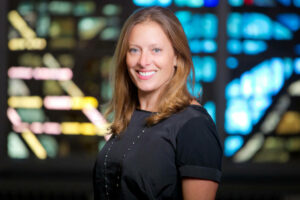
Rabbi Geri Newburge of Main Line Reform Temple-Beth Elohim (Wynnewood)
“COVID was terrible. But it did give us time to do things we enjoy at home, to be with our families, to reconnect with friends on platforms like Zoom. And we swore that we were never going to go back to our crazy lives. And guess what we’ve done? We’ve gone back to our crazy lives. We can’t lose the pieces that we were able to rediscover in ourselves and with the people we care about just because we decided it’s time to move on from COVID.”



